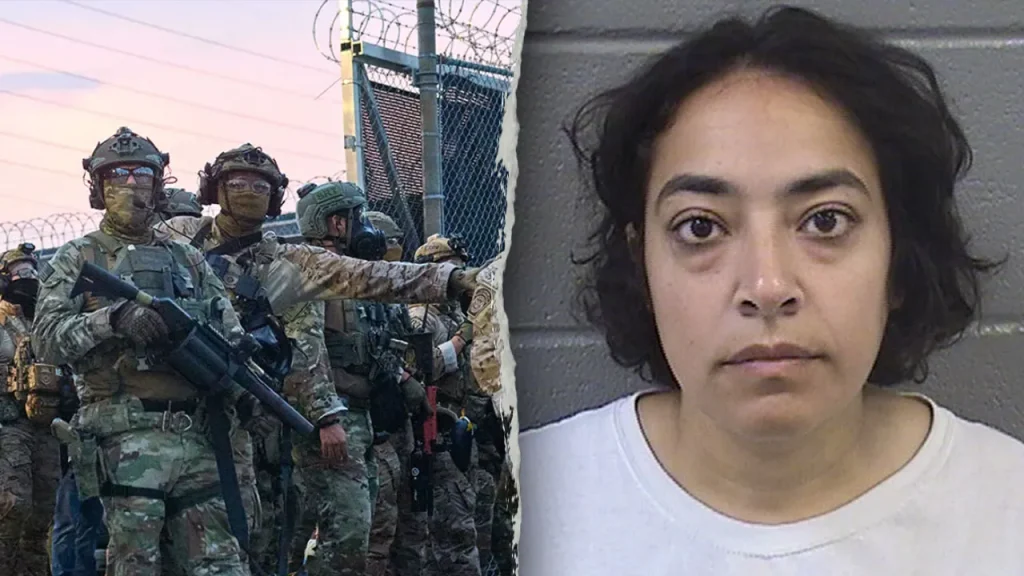University of Chicago Professor’s Arrest Raises Questions About Academic Freedom and Accountability
In a controversial development that has sparked debate about the boundaries of academic freedom and faculty conduct, a University of Chicago professor was recently arrested during an anti-ICE demonstration. Professor Eman Abdelhadi, an associate professor in the Department of Comparative Human Development, now faces serious legal charges following an October 3rd incident outside an Immigration and Customs Enforcement facility in Broadview, Illinois. The arrest has prompted calls for university action from student leaders, highlighting tensions between political activism and professional responsibilities within academic institutions.
Tyler Shasteen, president of the university’s Turning Point USA chapter, has voiced significant concerns about Professor Abdelhadi’s conduct and rhetoric. Shasteen emphasized that students deserve a campus environment where they can express themselves without fear of faculty intimidation. His statements reflect broader worries that a professor’s strong political positions might create an unwelcoming atmosphere for students with differing viewpoints. “Professor Abdelhadi’s statements, which clearly endorse violence, are unacceptable and undermine the safety and well-being of our community,” Shasteen remarked, calling for the university to review her position and ensure accountability for any actions that potentially violate university policies or the law.
The charges against Professor Abdelhadi are not minor – they include two felony counts of aggravated battery to a government employee and two misdemeanor counts of resisting or obstructing peace officers. These charges stem from events at a rally that represents just one in a series of demonstrations at the ICE facility, some of which have reportedly turned violent. While the specific details of Abdelhadi’s alleged actions remain unclear in public reporting, the severity of the charges has intensified scrutiny of her case. The University of Chicago has issued a general condemnation of violence but has not directly addressed questions about whether the professor faces any internal disciplinary measures, maintaining an institutional distance from the specific incident.
Professor Abdelhadi’s public statements before and after her arrest provide insight into her political perspectives and approach to activism. Just a day before her arrest, she appeared on a podcast where she accused ICE of “terrorizing our communities” and called for resistance, stating, “At this point, you are either on the side of protecting our neighbors and protecting our community, or you’re on the side of this administration. There is no neutral ground in this moment.” Following her arrest, she expressed gratitude for support received, writing on social media platform Bluesky: “I feel fortified by your presence in my life and in the world. I keep thinking about all our neighbors and siblings—hundreds in Chicago alone—who’ve been detained into the unknown of horrendous facilities. We owe them resistance.” These statements reflect a deeply held conviction in her activism around immigration enforcement issues.
Earlier statements by Professor Abdelhadi at a socialist conference reveal a complex relationship with her employer. She candidly expressed disdain for the University of Chicago, describing it as “evil” and “a colonial landlord,” yet acknowledged it as “one of the biggest employers in the city of Chicago” where she has “access to thousands of people that I could potentially organize.” This tension between criticizing an institution while working within it represents a dilemma faced by many academics with strong political convictions who see their positions as potential platforms for advancing social change. Her characterization of the university as simultaneously problematic and a potential site for organizing illustrates the complicated relationship between academic employment and political activism.
The situation raises fundamental questions about the responsibilities of faculty members, the limits of protected speech and activism, and how universities should respond when professors face criminal charges related to their political activities. While universities traditionally protect academic freedom and the right of faculty to engage in political expression, incidents involving alleged violence or law-breaking create challenging terrain for institutional responses. The University of Chicago, known for its strong stance on free expression through its “Chicago Principles,” now faces the delicate task of balancing its commitment to free speech with concerns about faculty conduct and institutional reputation. As this case continues to develop, it will likely serve as an important reference point in ongoing national conversations about the intersection of academia, activism, and accountability in increasingly polarized times.


